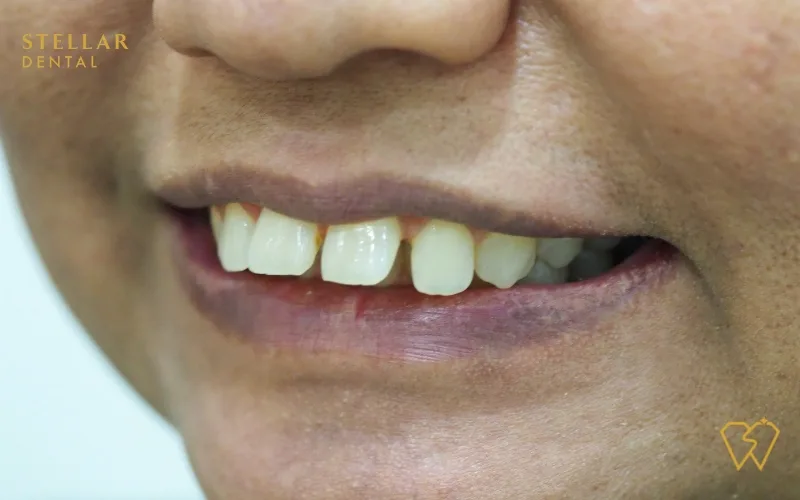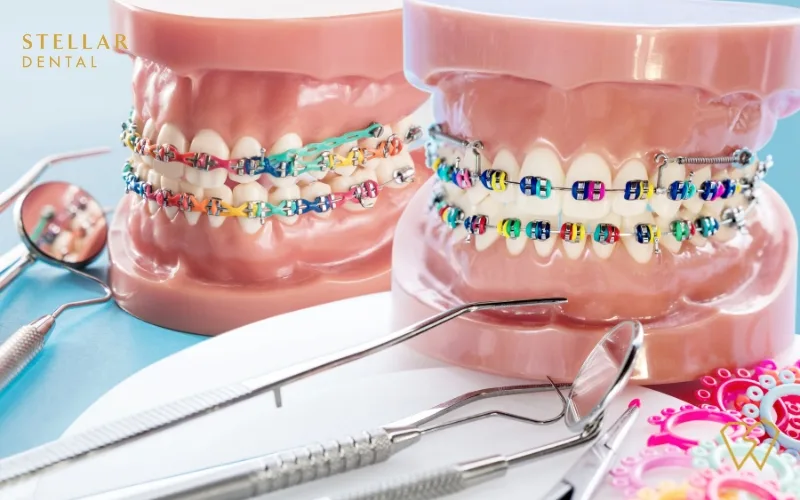Toothaches can be a frustrating and painful experience, often causing discomfort that can interfere with daily life. While it’s always best to see a dentist as soon as possible to address the underlying issue, several home remedies can help provide temporary relief. From using cold compresses to applying clove oil, these home remedies can provide much-needed relief until you can get to a dental professional. This article will discuss the most effective home remedies and over-the-counter medications to help reduce toothache.
Common causes of a toothache
A toothache is a pain or discomfort in or around a tooth. The discomfort can range from mild to severe. It can be caused by multiple factors, including tooth decay, a cracked tooth, a gum infection, or wisdom teeth growing out.
Home remedies for toothache
Below mentioned are natural home remedies that can temporarily relieve the pain and discomfort of a toothache. These remedies are only intended to be a temporary solution, and seeking professional treatment is still necessary.

1. Cold compresses
Applying a cold compress to the cheek or jaw can help reduce swelling and numb the area affected by the toothache. A cold compress is a cloth or bag filled with ice or frozen items. When applied to the affected area, the cold temperature can help reduce inflammation and numb the pain receptors, relieving toothache pain.
To use a cold compress for toothache relief, follow these steps:
- Fill a bag with ice or something frozen. Alternatively, you can wrap a few ice cubes in a cloth or towel.
- Apply the cold compress to the affected area for 10-15 minutes.
- Repeat the process every hour or as needed to reduce pain and inflammation.
It is important to note that a cold compress should not be applied directly to the skin as it can cause frostbite. Instead, wrap the ice or frozen object in a cloth or towel before applying it to the affected area.

2. Saltwater rinse
A saltwater rinse is a solution made by mixing a teaspoon of salt with a cup of warm water. The saltwater solution can help reduce inflammation and kill bacteria in the mouth, providing relief from toothache.
To prepare a saltwater rinse, follow these steps:
- Fill a cup with warm water.
- Mix a teaspoon of salt into the water.
- Swish the solution in your mouth for 30 seconds to a minute.
- Next, spit the solution out and rinse your mouth with water.
- Repeat the process as needed.
In addition to providing temporary relief from toothache pain, a saltwater rinse has several potential benefits for oral health. The salt in the solution can help reduce inflammation in the mouth, which can benefit people with gum disease or other inflammatory conditions. Additionally, the saltwater solution can help kill bacteria in the mouth, reducing the risk of infections and helping to prevent bad breath.

3. Hydrogen peroxide rinse
Hydrogen peroxide is a common household cleaning product known for its disinfectant properties. It is also an effective home remedy for temporary relief from toothache pain.
To use hydrogen peroxide for toothache relief, follow these steps:
- Mix a small amount of hydrogen peroxide with an equal amount of water.
- Swish the solution in your mouth for 30 seconds to a minute.
- After spitting out the solution, rinse your mouth with water.
- Repeat the process as needed to reduce pain and inflammation.
Not swallowing hydrogen peroxide is essential as it can be harmful if ingested. It is also not recommended to use hydrogen peroxide for more than a few days, as it can cause irritation and damage to the gums and oral tissue.

4. Clove oil
Clove oil is a natural remedy used for centuries to relieve toothache. The oil is extracted from the flower buds of the clove tree and is known for its antimicrobial and analgesic properties.
To use clove oil for toothache relief, follow these steps:
- Dilute a few drops of clove oil with an equal amount of carrier oil, such as coconut or olive oil.
- Apply the diluted clove oil to a cotton ball or Q-tip and apply it to the affected area.
- Hold the cotton ball for a few minutes to allow the oil to penetrate the skin.
- Repeat the process as needed.
Do not use undiluted clove oil, as it can cause irritation and allergic reactions. While clove oil can temporarily relieve toothache, it is essential to seek professional dental treatment to address the underlying cause of the toothache.

5. Peppermint tea bags
Another home remedy for toothache is peppermint tea. The tea is made from the leaves of the peppermint plant. To use peppermint tea bags for toothache relief, follow these steps:
- Stray a peppermint tea bag in hot water for five to ten minutes.
- Remove the tea bag from the water and allow it to cool until it is comfortable to touch.
- Place the tea bag on the affected tooth and hold it for a few minutes.
- Repeat the process as needed.

6. Garlic
Garlic is a natural remedy used for centuries to relieve various ailments, including toothache pain. The herb is known for its antimicrobial and anti-inflammatory properties, which can help reduce pain and inflammation in the mouth.
To use garlic for toothache relief, follow these steps:
- Crush a clove of garlic and mix it with some salt.
- Apply the mixture to the affected area and hold it in place for a few minutes.
- To get the garlic mixture out of your mouth, rinse it with normal water.
- Repeat the process as needed.

7. Thyme
Thyme is a herb commonly found in Mediterranean region and is known for its antimicrobial and anti-inflammatory properties. It is often used in cooking and has a strong, pungent aroma. The herb is believed to have analgesic properties, which can help reduce pain and inflammation in the mouth.
To use thyme for toothache relief, follow these steps:
- Steep a teaspoon of dried thyme in a cup of hot water for 5-10 minutes.
- Strain the thyme from the water and allow the tea to cool until it is comfortable to drink.
- Drink thyme tea several times a day to reduce pain and inflammation.
Alternatively, mix a few drops of thyme oil with carrier oil, such as coconut or olive oil, and apply them to the affected area.

8. Aloe vera
Aloe vera is a plant that is native to Africa and is known for its medicinal properties. The plant is often used to treat various skin conditions, but it can also be used as a natural remedy for toothache pain.
Aloe vera has anti-inflammatory and analgesic properties, which can help reduce pain and inflammation in the mouth. It is also believed to have antibacterial properties, which can help kill bacteria in the mouth and reduce the risk of infections.
To use aloe vera for toothache relief, follow these steps:
- Break off a small piece of an aloe vera leaf and squeeze out the gel.
- Apply the gel to the painful tooth and hold it in place for a few minutes.
- Rinse your mouth with plain water to remove the aloe vera gel.
- Repeat the process as needed to reduce pain and inflammation.
When to seek medical treatment for toothaches
Toothaches can range in severity from mild to severe, and the appropriate course of treatment will depend on the underlying cause of the toothache. If you are experiencing a toothache, you must see a dentist as soon as possible to determine the cause and receive proper treatment. This is especially important if the toothache is severe or if you are experiencing any of the following symptoms:
- Fever
- Swelling in the face or neck
- Difficulty swallowing or breathing
- Difficulty opening the mouth
- Redness or tenderness in the gums
- A foul-tasting discharge from the mouth
- Persistent pain that does not go away with over-the-counter pain relievers
Seeking medical treatment for toothaches is crucial because it can help to identify the cause of the toothache and provide the appropriate treatment. Various factors, such as tooth decay, a cracked tooth, an abscess, or gum disease, can cause toothaches. Without proper treatment, these conditions can worsen and lead to more severe problems, such as infection, tooth loss, or damage to other teeth.
Toothaches can also signify more serious underlying health conditions, such as cardiovascular disease or diabetes. By seeking medical treatment for a toothache, you can help to identify and address these underlying conditions, which can help to improve your overall health.
A dentist can diagnose the cause of the toothache and recommend the appropriate treatment, which may include filling a cavity, prescribing antibiotics, or extracting a tooth. If you cannot see a dentist immediately, use over-the-counter pain relievers to provide temporary relief and get yourself checked when you are free.
How to avoid toothache?
While home remedies can temporarily relieve toothache, they are not a substitute for professional dental treatment. To prevent toothaches long-term, practicing good oral hygiene and seeking regular dental care is essential. Here are some tips for avoiding toothaches:
- Use fluoride toothpaste and a soft-bristled toothbrush to brush your teeth twice daily.
- Floss daily to remove food particles between your teeth.
- Use an antimicrobial mouthwash to kill bacteria in your mouth.
- Avoid sugary and acidic foods and drinks, which can contribute to tooth decay.
- Replace your toothbrush every three to four months or sooner if the bristles fray.
- Get regular dental check-ups and cleanings to prevent the buildup of plaque and tartar.
- Wear a mouthguard to protect your teeth from injury while playing sports.
Following these tips can help prevent toothaches and maintain good oral health.
Final words
Toothaches are common and can be caused by various causes. While there are different home and over-the-counter remedies that can temporarily relieve toothache pain, remember that these remedies are not a substitute for proper dental treatment. We recommend to find a dentist near you or Stellar Dental for toothache treatment. A dentist can diagnose the cause of the toothache and recommend the appropriate treatment, which may include teeth scaling, tooth filling, prescribing antibiotics, or extracting a tooth. By seeking proper dental treatment, you can help to relieve your toothache pain and prevent the condition from worsening.








